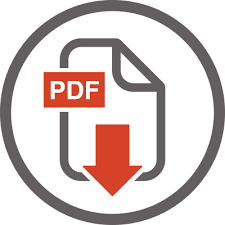Washington, DC (June 7, 2017) – The Sweetener Users Association (SUA) today issued the following statement with respect to modifications to the U.S.-Mexico sugar suspension agreements:
“The modifications to the U.S.-Mexico suspension agreements announced yesterday will make two bad agreements far worse. Through what amounts to a stealth price support increase, the modifications will further distort U.S. sugar markets and increase prices, enriching the U.S. sugar lobby while harming U.S. consumers and the food and beverage industries and their employees.
“From the beginning, the suspension agreements have been detrimental to industrial users by restricting supplies of raw sugar in the U.S. market and artificially driving up raw sugar futures to levels previously associated with natural disasters or other emergencies. The agreements also depressed cane refiners’ margins, distorted trade flows and defied the express intent of Congress, which voted for minimum prices in the U.S. market that are far below the reference prices in the agreements. The modifications announced yesterday will further increase the reference prices and continue the flawed formula for determining Mexican access, which results in a deliberate shorting of the U.S. market.
“It is ironic that after the Administration conducted exhaustive negotiations with Mexico, and obtained virtually every demand of the U.S. domestic sugar industry, the sugar lobby still refuses to endorse the modifications. Their ostensible reason – that provisions for Mexico to supply additional U.S. needs after April 1 of each year constitute a ‘loophole’ – is absurd on its face and demonstrates that the sugar lobby is simply trying to extract additional concessions, despite having gotten what it asked for.
“The sugar lobby’s argument is that since post-April 1 additional supplies will be categorized as raw or refined sugar on the basis of a polarity break-point of 99.5, not 99.2 as in other modifications to the agreements, this is somehow a ‘loophole’ that will allow Mexico to sell its major product, estandar, as raw rather than refined sugar. But the fact is, a 99.5 dividing line is not a loophole, it is the law. The Harmonized Tariff Schedule of the United States follows international conventions in defining raw sugar as having less than 99.5 polarity. It is the 99.2 polarity breakpoint in the U.S.-Mexico deal that is the exception and inconsistent with international trade conventions. Although nothing prevents the United States and Mexico from establishing a special polarity measure for purposes of this agreement, the sugar lobby’s claims of ‘loopholes’ should not be taken seriously.”
Media Contact:
Jennifer Cummings
(202) 822-9491
jcummings@fratelli.com

